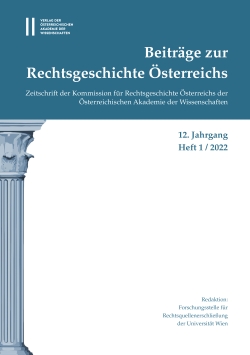
Beiträge zur Rechtsgeschichte Österreichs 12. Jahrgang Heft 1/2022, pp. 96-118, 2022/03/28
According to the Austrian Civil Code (the ‘Allgemeines Bürgerliches Gesetzbuch’) of 1811, sexual intercourse was amarital duty for both spouses. Many divorce proceedings dating between 1783 and 1938 deal with this aspect. This articleexplores how and by whom the marital obligation to have sexual intercourse was addressed in court. Although itwas often men who dealt with this issue – judges, lawyers, husbands or male experts such as priests or doctors –, thepaper argues that wives too referred to their husbandsʹ refusal of marital sexual intercourse as a reason for divorce. Inaddition, many of the divorce proceedings afford us an insight into a variety of reasons for its refusal. The article alsoaims to demonstrate that the refusal of sexual intercourse did not necessarily mean a refusal to procreate. Furthermore,it addresses the issue of sexual violence in marriage. Although marital sexual violence did not become punishable asrape in Austria until 1989, it was addressed in court by some wives during the period in question.
Keywords: divorce proceedings;gender history;history of sexuality;law;marital duty;marital sexual violence